EMDR Therapy at River Rocks Recovery
When you’ve been through something painful, even small reminders can feel overwhelming. Eye Movement Desensitization and Reprocessing (EMDR) therapy helps you process those memories in a safe, structured way—so you can move forward without being constantly pulled backward.
At River Rocks Recovery in Middletown, Ohio, we offer EMDR therapy as part of our trauma-informed approach to mental health and addiction treatment. We proudly serve individuals across Butler and Warren Counties, including nearby communities like Dayton, Cincinnati, Hamilton, and Franklin.
Whether you’re navigating PTSD, anxiety, depression, or trauma-related substance use, EMDR offers real relief—without needing to relive the past in detail.
Call Today For Scheduling Information
EMDR stands for Eye Movement Desensitization and Reprocessing, a therapy developed to help people heal from traumatic experiences. Unlike traditional talk therapy, EMDR uses bilateral stimulation—like guided eye movements, tapping, or tones—to help the brain process stuck or distressing memories.
It’s not hypnosis. You stay in control the entire time. But EMDR allows you to reprocess difficult memories so they no longer feel as emotionally charged or triggering.
Backed by decades of research, EMDR is recommended by leading organizations like:
EMDR helps your brain process painful memories so they no longer feel as overwhelming or emotionally intense. It’s a step-by-step approach that happens over time, and you’ll be guided the whole way.
Here’s what it looks like:
You don’t have to relive every detail.
The goal of EMDR isn’t to retell your trauma—it’s to release its hold on you. We move at your pace, always with care and respect for where you are..
EMDR therapy is widely used for trauma but can support a range of mental health challenges, including:
At River Rocks Recovery, we take the time to understand how trauma affects your thoughts, relationships, and behaviors—so we can help you rebuild from the inside out.
Shapiro, F. (2014). The Role of Eye Movement Desensitization and Reprocessing (EMDR) Therapy in Medicine: Addressing the Psychological and Physical Symptoms Stemming from Adverse Life Experiences. Permanente Journal, 18(1), 71–77. https://www.ncbi.nlm.nih.gov/pmc/articles/PMC3951033/
U.S. Department of Veterans Affairs. (n.d.). Eye movement desensitization and reprocessing (EMDR) for PTSD. In Posttraumatic Stress Disorder: National Center for PTSD. https://www.ptsd.va.gov/professional/treat/txessentials/emdr_pro.asp
Minnesota House of Representatives. (2020). EMDR Therapy: Trauma Recovery [PDF].https://www.house.mn.gov/comm/docs/Iy76DIi8I0eG2aIEuU-JZw.pdf
Trauma often plays a role in addiction and mental health struggles—even when it’s not obvious at first. That’s why EMDR is a key part of our programming at River Rocks Recovery.
Our licensed clinicians are specially trained in EMDR and offer:
Healing happens when you’re ready. And we’ll be here every step of the way.
EMDR therapy can be included in your treatment plan at several levels of care, depending on your needs:
Partial Hospitalization Program (PHP)
Daytime treatment with EMDR sessions integrated into a weekly schedule of therapies and activities.
Intensive Outpatient Program (IOP)
Flexible care for those stepping down from higher levels or needing support while living at home.
For those in a stable phase of recovery, EMDR can be offered as part of weekly or biweekly individual therapy sessions. This level provides ongoing trauma care with the most flexibility.
Some people notice shifts after just a few sessions. Others take longer, especially if there’s a history of complex trauma. We tailor the pace to your comfort and goals.
Not necessarily. Unlike traditional talk therapy, EMDR doesn’t require you to explain every part of your trauma. The process helps your brain reprocess the memory without needing full verbal recounting.
For most people, yes. Before starting, we’ll make sure EMDR is the right fit and build emotional regulation skills to keep you grounded during sessions.
Yes—especially when addiction is connected to unresolved trauma. EMDR can reduce the emotional pain that fuels substance use, making long-term recovery more sustainable.
That’s okay. EMDR doesn’t begin until you feel safe and supported. Our team works with you to build stability and trust before diving into trauma processing.
Located in Middletown, Ohio, River Rocks Recovery offers EMDR therapy to individuals and families throughout southwest Ohio. Whether you’re coming from nearby cities like Hamilton, Franklin, Lebanon, Springboro, Monroe, or Trenton—or traveling from larger hubs like West Chester, Dayton, or Cincinnati—our center is easily accessible from I‑75 and offers a peaceful, supportive environment to begin your healing journey.
We’re proud to serve clients across Butler and Warren Counties with compassionate, trauma-informed care that meets you where you are. At River Rocks Recovery, you don’t have to search endlessly for the right help. EMDR therapy is available right here, with a team that’s ready to walk alongside you every step of the way.
📞 Call (888) 905-6281 or Verify Insurance today to learn more about starting EMDR therapy at River Rocks Recovery.
Call Today For Scheduling Information
You don’t have to carry the weight of trauma alone. EMDR therapy offers a path to healing that honors your resilience—and supports your recovery at every stage.
Verify Insurance Benefits
Find out if your insurance provider could cover your treatment
Find out if your insurance provider could cover addiction and mental health treatment in the Ohio area.






















































675 N University Blvd Middletown OH 45042
